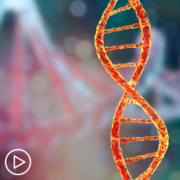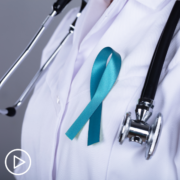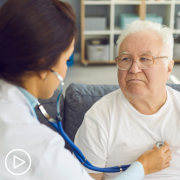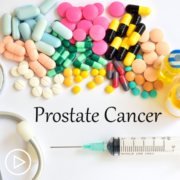Understanding Stages of Ovarian Cancer: What Should Patients Know?
Understanding Stages of Ovarian Cancer: What Should Patients Know? from Patient Empowerment Network on Vimeo.
What are the ovarian cancer stages, and what do patients need to know about them? Expert Dr. Ebony Hoskins provides an overview of the stages and explains why they are important in both diagnosis and treatment planning.
Dr. Hoskins is a board-certified gynecologic oncologist at MedStar Washington Hospital Center and assistant professor of Clinical Obstetrics and Gynecology at Georgetown University Medical Center. Hoskins sees women for gynecological malignancies, which include the treatment of endometrial, ovarian, vulva, vaginal and cervical cancers.
[ACT]IVATION TIP
“…for patients with a stage of ovarian cancer, understanding what the stage is, what organs that were involved, and kind of the plan of attack.”
See More from [ACT]IVATED Ovarian Cancer
Related Resources:

|

|

|
Transcript:
Mikki:
Dr. Hoskins, what are the stages of ovarian cancer, and why is it important for treatment planning?
Dr. Ebony Hoskins:
Well, stages of ovarian cancer, typically we stage cancers in four stages. Stage I, I would look at it very generally as a disease, confined to the ovary. Stage II is disease that’s in the pelvis, kind of below the pelvic bones in that area. Stage III can be disease in the lymph nodes or in the upper abdomen. And when I think stage IV for any disease, I think metastatic disease or distant metastases. So someone who may have an ovarian cancer and now we see liver lesions, that is a stage IV. Someone who may have an ovarian disease, ovarian cancer that is now in the lung, that’s stage IV. So those are the way I look at it I, II, III, IV. In terms of treatment planning, we look at that and there’s data that look and say, “What are the best options for treatment in someone?” It depends on their stage and the grade. And that’s all kind of important in terms of treatment, but as well as for prognosis. So my activation tip for patients with a stage of ovarian cancer is understanding what the stage is, what organs that were involved, and kind of the plan of attack.
Share Your Feedback:
Create your own user feedback survey










